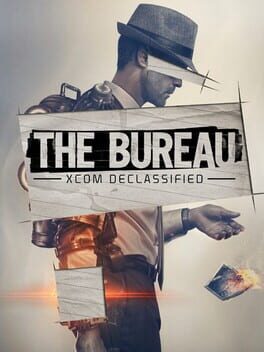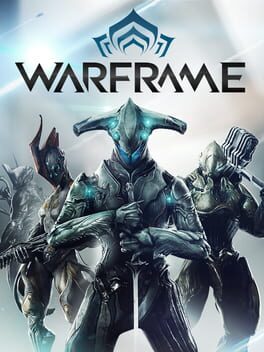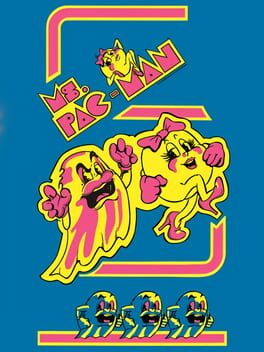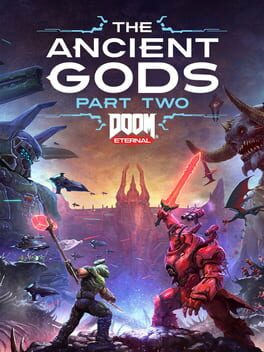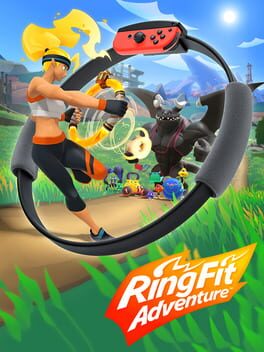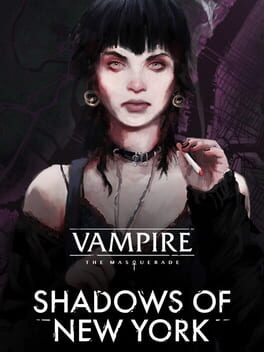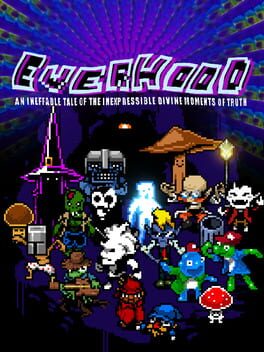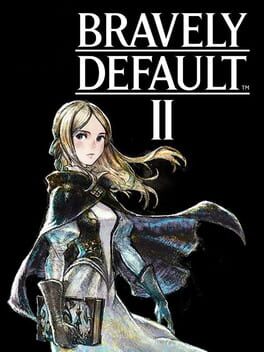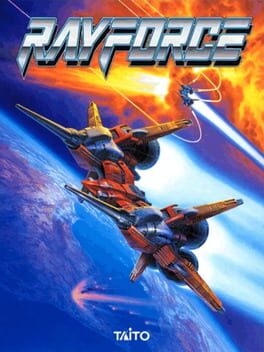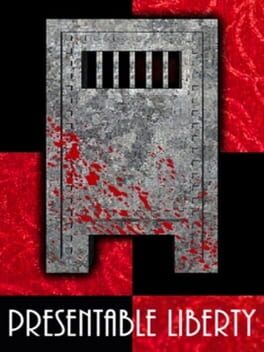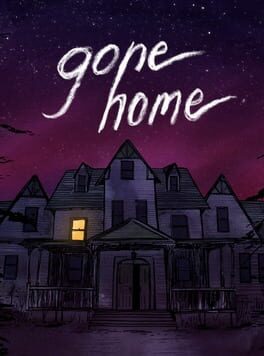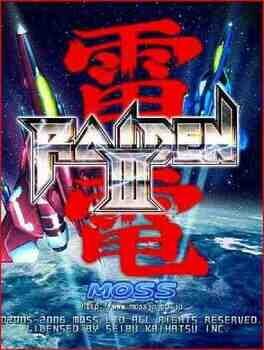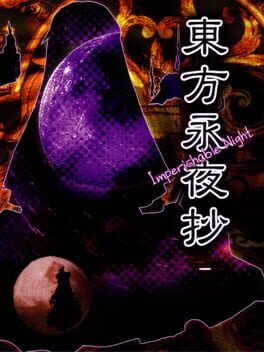Cold_Comfort
394 Reviews liked by Cold_Comfort
This review contains spoilers
The Bureau: XCOM Declassified
I started out hating this game. Not only did it seem like a more shallow version of the already-lackluster Mass Effect 2 combat from 2010, the story was nothing to write home about either. And yet I did write about it, so what changed? Well first of all, I have to acknowledge that the aesthetic is very well done. In terms of fidelity the game isn't amazing, but it has a very cohesive retro-futuristic look mixed with a weird XCOM 2 alien structure design, and it works for some reason. They feel appropriately out of place next to each other, like you have been invaded by a technologically superior race. Bravo. Second of all, and this is where it gets good, at some point after the halfway point I realized that this aesthetic of a 50s sci fi B movie was not just surface level. Rather it translated into the writing, the acting, and the story itself. Now obviously I can't know if this was intentional or not, but it certainly feels exactly like the corny stuff you'd expect from those productions. Certainly the art assets are made this way intentionally, and it would take really, really awful writers to come up with the stuff unintentionally, so my gut feeling is that it was on purpose. And while that may not make for a great game, it makes for a great concept for one.
Let's talk about the story for a minute. It starts off very predictably with the standard tropes of an in medias res by way of an alien attack on the government facility where you work as Special Agent William Carter. He literally looks like the family man you'd see in a Fallout poster which itself parodies 50s American propaganda. And the story itself follows suit; it is a clear allegory for a Cold War for a long while. The aliens are the Soviets, complete with infiltrators, sleeper agents, and a hivemind with no room for individuality. The main characters are, of course, the main characters; Americans who patriotically and heroically sacrifice their own lives for the country, and by God they look good doing it! Only, in the background and left unsaid for much of it is a more sinister undertone. For example, on the main base in the campaign there is a shooting range, as is customary in these types of games. At the start of the campaign this is a standard operation, you push a button, the targets line up, and you can shoot their heads or whatever you want. After a few missions, however, when you push that button little grey aliens show up. And then the game becomes not about shooting the stationary targets but about shooting a defenseless creature that, as you later come to know, is actually just a slave to the system, forced to build structures and only shooting at you in self-defense. Furthermore, Carter (the main character) slowly becomes fed up with the system and his (yours) boss, Faulke. Becomes of the way the chain of command works, he doesn't get to know all the information, and that often leaves him in the dark on missions.
All the above is fine and it could certainly make for an interesting experience if developed. But it's not. Instead after like half the game the allegory is dropped, the aliens are no longer Russians, now they're just regular aliens again. And Carter's outspoken dissatisfaction with the system morphs into something else. Throughout the game you find out that the main bad guy, the one that you must kill to turn off all the other aliens (because of course), has a telepathic bond with the entire rest of the alien species and gives them commands that way. When you finally confront him, he calls you Prisoner, as he has done in the past, and tells you that he actually doesn't care about you, he cares about your demon. It turns out that the reason Carter is special and has these abilities to overlook the battlefield in the way that forms the main mechanic of the game, is actually because he has an Ethereal living inside of him. Basically they're telepathic ghosts. Carter then promptly kills the bad guy and seals away the bad guy ghost in his arm (roll with it). They then return to base and lock it away in a giant tube of green gas that they conveniently had lying around. From this point on, Carter hears more and more voices, and he speaks out explicitly against them. This all comes to ahead when, after the base has been attacked for a second time, he faces the camera and speaks directly to you, the player and the ghost. He says he is done being a slave to the system, he has his own free will and he would rather die than be a puppet to someone else. So he gives you an ultimatum; he sets down a bomb and gives you 30 seconds to decide if you want to stay with him and be killed or detach yourself from him and leave the situation alone. The guy you've been controlling the entire time gives you an ultimatum. And you actually do have 30 seconds to decide. Incidentally it's not really a choice because if you choose to stay with him for the entire duration of the countdown, the bomb really does blow up and you get a game over screen. Instead you must detach yourself from him. And then you choose. Throughout the game there have been 3 minor characters; Director Faulke as mentioned before, the scientist Doctor Weir, and a hot female agent named Angela Weaver. Now you must choose one of them to possess, and you thusly play the last mission as that character. Not only that, the character you chose saves you from being assassinated by Carter, and so he is now an anti-hero in the story! You then proceed to go into space and kill the bad guy (again but for real this time I promise), and you have to choose whether to kill Carter or not. On one hand he threatened to kill you multiple times, and he has become a liability to the sytem, on the other you just spent something close to 10 hours playing as the man. This feels a bit like Mass Effect 3's ending choice of reprogramming the machines for your own benefit or destroying the system and breaking free will but at a severe cost to your progress. Except here there is no choice. You made your choice already. You chose to leave Carter, the only person who could've stopped the system, and instead you invested in Weaver, Weir, or Faulke. It doesn't matter who because they're all The System, they're all the same, there is no individuality between them. And so you dutifully step into the chamber from which the enemy army is controlled, and you take over. And then, and here's the good part, you order them to systematically slaughter each other. You don't just genocide the fuck out of them, you force them to genocide the fuck out of each other. Then, even though you EXPLICITLY FOUND A CURE FOR THE BODYSNATCHER DISEASE WHICH THEY INFECTED MILLIONS OF PEOPLE WITH EARLIER IN THE GAME, you genocide anyone who has been "compromised", anyone who was a victim, and you wipe out their towns, their cities, their entire histories. All to preserve the lie that there was no alien invasion. Everything gets redacted, every person who knew about it is either forced to work for XCOM or they're assassinated. And that's why I had to write about it.
I started out hating this game. Not only did it seem like a more shallow version of the already-lackluster Mass Effect 2 combat from 2010, the story was nothing to write home about either. And yet I did write about it, so what changed? Well first of all, I have to acknowledge that the aesthetic is very well done. In terms of fidelity the game isn't amazing, but it has a very cohesive retro-futuristic look mixed with a weird XCOM 2 alien structure design, and it works for some reason. They feel appropriately out of place next to each other, like you have been invaded by a technologically superior race. Bravo. Second of all, and this is where it gets good, at some point after the halfway point I realized that this aesthetic of a 50s sci fi B movie was not just surface level. Rather it translated into the writing, the acting, and the story itself. Now obviously I can't know if this was intentional or not, but it certainly feels exactly like the corny stuff you'd expect from those productions. Certainly the art assets are made this way intentionally, and it would take really, really awful writers to come up with the stuff unintentionally, so my gut feeling is that it was on purpose. And while that may not make for a great game, it makes for a great concept for one.
Let's talk about the story for a minute. It starts off very predictably with the standard tropes of an in medias res by way of an alien attack on the government facility where you work as Special Agent William Carter. He literally looks like the family man you'd see in a Fallout poster which itself parodies 50s American propaganda. And the story itself follows suit; it is a clear allegory for a Cold War for a long while. The aliens are the Soviets, complete with infiltrators, sleeper agents, and a hivemind with no room for individuality. The main characters are, of course, the main characters; Americans who patriotically and heroically sacrifice their own lives for the country, and by God they look good doing it! Only, in the background and left unsaid for much of it is a more sinister undertone. For example, on the main base in the campaign there is a shooting range, as is customary in these types of games. At the start of the campaign this is a standard operation, you push a button, the targets line up, and you can shoot their heads or whatever you want. After a few missions, however, when you push that button little grey aliens show up. And then the game becomes not about shooting the stationary targets but about shooting a defenseless creature that, as you later come to know, is actually just a slave to the system, forced to build structures and only shooting at you in self-defense. Furthermore, Carter (the main character) slowly becomes fed up with the system and his (yours) boss, Faulke. Becomes of the way the chain of command works, he doesn't get to know all the information, and that often leaves him in the dark on missions.
All the above is fine and it could certainly make for an interesting experience if developed. But it's not. Instead after like half the game the allegory is dropped, the aliens are no longer Russians, now they're just regular aliens again. And Carter's outspoken dissatisfaction with the system morphs into something else. Throughout the game you find out that the main bad guy, the one that you must kill to turn off all the other aliens (because of course), has a telepathic bond with the entire rest of the alien species and gives them commands that way. When you finally confront him, he calls you Prisoner, as he has done in the past, and tells you that he actually doesn't care about you, he cares about your demon. It turns out that the reason Carter is special and has these abilities to overlook the battlefield in the way that forms the main mechanic of the game, is actually because he has an Ethereal living inside of him. Basically they're telepathic ghosts. Carter then promptly kills the bad guy and seals away the bad guy ghost in his arm (roll with it). They then return to base and lock it away in a giant tube of green gas that they conveniently had lying around. From this point on, Carter hears more and more voices, and he speaks out explicitly against them. This all comes to ahead when, after the base has been attacked for a second time, he faces the camera and speaks directly to you, the player and the ghost. He says he is done being a slave to the system, he has his own free will and he would rather die than be a puppet to someone else. So he gives you an ultimatum; he sets down a bomb and gives you 30 seconds to decide if you want to stay with him and be killed or detach yourself from him and leave the situation alone. The guy you've been controlling the entire time gives you an ultimatum. And you actually do have 30 seconds to decide. Incidentally it's not really a choice because if you choose to stay with him for the entire duration of the countdown, the bomb really does blow up and you get a game over screen. Instead you must detach yourself from him. And then you choose. Throughout the game there have been 3 minor characters; Director Faulke as mentioned before, the scientist Doctor Weir, and a hot female agent named Angela Weaver. Now you must choose one of them to possess, and you thusly play the last mission as that character. Not only that, the character you chose saves you from being assassinated by Carter, and so he is now an anti-hero in the story! You then proceed to go into space and kill the bad guy (again but for real this time I promise), and you have to choose whether to kill Carter or not. On one hand he threatened to kill you multiple times, and he has become a liability to the sytem, on the other you just spent something close to 10 hours playing as the man. This feels a bit like Mass Effect 3's ending choice of reprogramming the machines for your own benefit or destroying the system and breaking free will but at a severe cost to your progress. Except here there is no choice. You made your choice already. You chose to leave Carter, the only person who could've stopped the system, and instead you invested in Weaver, Weir, or Faulke. It doesn't matter who because they're all The System, they're all the same, there is no individuality between them. And so you dutifully step into the chamber from which the enemy army is controlled, and you take over. And then, and here's the good part, you order them to systematically slaughter each other. You don't just genocide the fuck out of them, you force them to genocide the fuck out of each other. Then, even though you EXPLICITLY FOUND A CURE FOR THE BODYSNATCHER DISEASE WHICH THEY INFECTED MILLIONS OF PEOPLE WITH EARLIER IN THE GAME, you genocide anyone who has been "compromised", anyone who was a victim, and you wipe out their towns, their cities, their entire histories. All to preserve the lie that there was no alien invasion. Everything gets redacted, every person who knew about it is either forced to work for XCOM or they're assassinated. And that's why I had to write about it.
Warframe
2013
I’d rather have the 366 hours I’ve spent on Warframe to be curtailed off my remaining lifespan than showing on my Steam profile.
Never seen a game with such a disproportionate ratio of potentially cool tools : content where any of them matter for shit.
40+ characters, each having three skills and one ultimate. A robust card customization system that lets you change their attributes directly so the same healer can be played as a burst white mage on a long cooldown, a wide range party buffer or any other combination of strength vs range vs cost vs duration. Sixteen different elements to attach to your weapons, pretty shallow as they are simple colored bullets that will depleted the bad guys’s bars faster or slower, but they are there. Two firearms and one melee weapon. Absolute fuck all to use all of this in.
You suffer through an inane story for weird people really into reading codex entries for an entire solar system worth of missions where enemies ramp up from “easily one shot with a level 3 weapon” to “the same, but maybe you need to slap some cards on it”, and that’s the baseline of everything you’ll face with your level 1000 robot ninja. No dungeons, no raids, no bosses built around the power level of a midgame player who finished the story, let alone a well specced endgame one. Seriously, imagine a moba where you can only play 5v3 against bots in a single lane.
Okay, I’m only being 98% truthful. There’s a daily mission consisting of a random story quest with tacked on multipliers that resembles something a high level character may face; if you are lucky enough that the winner of the lottery is a boss battle, instead of a stealth mission for the fifth consecutive day, the game suddenly turns out pretty fun. To me, it happened exactly once.
There’s also a never-ending(?) arena, which they put in the game shortly before I dropped it,
where you need to beat a floor before the clock ticks 0 to progress and difficulty ramps up very fast, a genuinely good step in the right direction although these characters SCREAM team based synergies and MMO roles, a difficult DPS check may be appreciated but it will make me wonder what’s the point of Frames like Oberon nonetheless. This game has a weird fascination with infinitely scaling horde fights, before the aforementioned mode got in the generally accepted “endgame build showoff” mode was to sit in the basic Survival mission type, which doesn’t end until you physically exit the map, and sit there for LITERAL HOURS with a near immortal Frame like Inaros until enemies strong enough to put a dent on you popped up. Pure insanity.
At least this grind is alleviated by the much celebrated parkour system, it’s cute but it’s quickly solved by cycling through your three main forms of ground movements of jump, slide, and roll until you hit a slope, jump again pointing your crosshair towards the desired height, and activating your air thrusters to glide robo Max Payne style. Complex enough for a good chunk of the playerbase to get stuck at the “mission required to level up your account you can only attempt once a day” that made you high jump in place lol. What I’m saying is, it could’ve been worse, it could’ve been a cover shooter.
If you walk into any Warframe discussion the fanbase will be super fast to point at the very generous free to play formula as a sign of goodwill from the developers, and it’s admittedly very true: a 15 bucks expense turns you into a millionaire who can snatch any vaulted piece of gear that pops up in trade chat for a good while, and you are only a few good deals away to becoming an oil baron. It doesn’t balance the -10000 points lost from the insane Forma system, a craftable item necessary for high level weapon customization that is locked to a 24(real life)h timer. Either you have the foresight to always have your lab churning them out ever since your first day, in preparation for the endgame where you will burn through them, or 200 hours later you’ll bang your head against the wall as the two hours process of taking a new gun from zero to hero just became a five days endeavor.
Sad game for soccer dads who get excited when the post office rolls the number on the electronic billboards, happy to throw their ticket in the trashcan and go home when their turn is up rather than use the opportunity to make something of that wasted time. I don’t like it.
in the commonly mmo-shaped idea of them as endgame hardcore content, technically there’s bosses and every single mission is an instanced dungeon, but they’re still part of the dozing nightmare that is the main quest
Never seen a game with such a disproportionate ratio of potentially cool tools : content where any of them matter for shit.
40+ characters, each having three skills and one ultimate. A robust card customization system that lets you change their attributes directly so the same healer can be played as a burst white mage on a long cooldown, a wide range party buffer or any other combination of strength vs range vs cost vs duration. Sixteen different elements to attach to your weapons, pretty shallow as they are simple colored bullets that will depleted the bad guys’s bars faster or slower, but they are there. Two firearms and one melee weapon. Absolute fuck all to use all of this in.
You suffer through an inane story for weird people really into reading codex entries for an entire solar system worth of missions where enemies ramp up from “easily one shot with a level 3 weapon” to “the same, but maybe you need to slap some cards on it”, and that’s the baseline of everything you’ll face with your level 1000 robot ninja. No dungeons, no raids, no bosses built around the power level of a midgame player who finished the story, let alone a well specced endgame one. Seriously, imagine a moba where you can only play 5v3 against bots in a single lane.
Okay, I’m only being 98% truthful. There’s a daily mission consisting of a random story quest with tacked on multipliers that resembles something a high level character may face; if you are lucky enough that the winner of the lottery is a boss battle, instead of a stealth mission for the fifth consecutive day, the game suddenly turns out pretty fun. To me, it happened exactly once.
There’s also a never-ending(?) arena, which they put in the game shortly before I dropped it,
where you need to beat a floor before the clock ticks 0 to progress and difficulty ramps up very fast, a genuinely good step in the right direction although these characters SCREAM team based synergies and MMO roles, a difficult DPS check may be appreciated but it will make me wonder what’s the point of Frames like Oberon nonetheless. This game has a weird fascination with infinitely scaling horde fights, before the aforementioned mode got in the generally accepted “endgame build showoff” mode was to sit in the basic Survival mission type, which doesn’t end until you physically exit the map, and sit there for LITERAL HOURS with a near immortal Frame like Inaros until enemies strong enough to put a dent on you popped up. Pure insanity.
At least this grind is alleviated by the much celebrated parkour system, it’s cute but it’s quickly solved by cycling through your three main forms of ground movements of jump, slide, and roll until you hit a slope, jump again pointing your crosshair towards the desired height, and activating your air thrusters to glide robo Max Payne style. Complex enough for a good chunk of the playerbase to get stuck at the “mission required to level up your account you can only attempt once a day” that made you high jump in place lol. What I’m saying is, it could’ve been worse, it could’ve been a cover shooter.
If you walk into any Warframe discussion the fanbase will be super fast to point at the very generous free to play formula as a sign of goodwill from the developers, and it’s admittedly very true: a 15 bucks expense turns you into a millionaire who can snatch any vaulted piece of gear that pops up in trade chat for a good while, and you are only a few good deals away to becoming an oil baron. It doesn’t balance the -10000 points lost from the insane Forma system, a craftable item necessary for high level weapon customization that is locked to a 24(real life)h timer. Either you have the foresight to always have your lab churning them out ever since your first day, in preparation for the endgame where you will burn through them, or 200 hours later you’ll bang your head against the wall as the two hours process of taking a new gun from zero to hero just became a five days endeavor.
Sad game for soccer dads who get excited when the post office rolls the number on the electronic billboards, happy to throw their ticket in the trashcan and go home when their turn is up rather than use the opportunity to make something of that wasted time. I don’t like it.
in the commonly mmo-shaped idea of them as endgame hardcore content, technically there’s bosses and every single mission is an instanced dungeon, but they’re still part of the dozing nightmare that is the main quest
Ms. Pac-Man
1982
I always found getting used to the AI of the ghosts a tenuous extensively difficult concept when playing this for any longer than like a few minutes. Somehow reached a zen-like state with the AI though and managed to blow through to where the acts started repeating for this classic, which I will take as my victory. I'm not exactly sure WHY I chose to take this game as my use of birthday hours other than obligation of it being next up on my list so I'm just going to blog some bullshit about the last year and desperately try to somehow link it to this game cuz fuck it tim rogers can talk about this game for several hours why can't I?
22->23 isn't exactly the most exciting of yearly jumps, especially when said last year could very well be defined as "terror", "terrible", "terrifically shit". The end of quarantine is barely visible on the horizon now where it hasn't been for some time, and I walk into the celebration of living another year in it feeling like I haven't changed much. I like to think I've worked to improve myself in some areas, in that I've been able to refine my writing and express myself better, that I've been able to curb some of my worse behavior in terms of aggression, that I've gotten better at managing my time. I've managed to make due on some goals, and been able to make new ones I'm making good progress towards. Otherwise though, I still find myself feeling a bit of sorrow on an afternoon of celebration.
It's interesting I suppose to reflect while playing something that otherwise feels timeless, completely unchanged as years go by. We've Certainly Gone A Long Way since this, and hopefully I can look back on today feeling like I've gone a long way as well. Hope you all have a good rest of the year.
22->23 isn't exactly the most exciting of yearly jumps, especially when said last year could very well be defined as "terror", "terrible", "terrifically shit". The end of quarantine is barely visible on the horizon now where it hasn't been for some time, and I walk into the celebration of living another year in it feeling like I haven't changed much. I like to think I've worked to improve myself in some areas, in that I've been able to refine my writing and express myself better, that I've been able to curb some of my worse behavior in terms of aggression, that I've gotten better at managing my time. I've managed to make due on some goals, and been able to make new ones I'm making good progress towards. Otherwise though, I still find myself feeling a bit of sorrow on an afternoon of celebration.
It's interesting I suppose to reflect while playing something that otherwise feels timeless, completely unchanged as years go by. We've Certainly Gone A Long Way since this, and hopefully I can look back on today feeling like I've gone a long way as well. Hope you all have a good rest of the year.
It's funny that right after I write a whole spheel talking about how much I love the maximalist feeling of Doom Eternal and constant adrenaline run it provides me that the second dlc pulls all the punches and delivers an almost Marvel Cinematic Universe experience and I mean that in the worst way.
I knew coming in that it would be easier (I watch hugo streams) but I wasn't expecting it to be doom eternal midgame. This would be fine, but the encounters are also extremely milquetoast. Enemies are introduced and then only fought in the same arena you see them or maybe you get an encounter that's just a bunch of them, not paired with other enemies much. You'll see a blood makyr here from DLC1, but it'll be the first thing you see that's easy to prioritize, or it'll be the only threat. Riveting.
I'm overgeneralizing, as there are a few solid encounters here, especially the optional encounters that were just absolutely major thrills that I loved almost completely. But it still feels like the trollish lovely feelings of Hugo and his team feel, well, minimized? Watered down?
I keep thinking of two things. Firstly, that this is the Doom 2 to DLC1's Plutonia. I mean this for several reasons. Like Doom 2, TAG2 perfects the roster that was already pretty good if even great after base game and TAG1. These new enemies are phenomenal even, with the cursed prowler being my favorite just for being a troll enemy done right that also punishes you just as well. They force you to use more of your weapon roster in an optimal pattern and contribute well to the "you will press these buttons and you'll press them right dammit". But, just like Doom 2, the overall design of the game is a major step down from previous. About half of the encounters are too basic, utilizing little of the synergy in waves or asking for much of what the core systems provide.
The second one I'm thinking of is Ninja Gaiden, no please stick with me. Ninja Gaiden 2 is one of my favorite games and is a pinnacle of extremely brutal fuck you blah blah blah i covered this in my TAG1 review, and rightly it's TAG1. This? It feels a lot like Ninja Gaiden 3. Something is 'missing' here, so missing that it takes me straight out of the game and makes me wonder where the soul went sometimes. It's so sanded off, devoid of much edge and made way easier. They throw a ridiculous amount of super ammo at you and then have you do a few encounters where you just spam the same move for spectacle.
If you're tired of me making analogies at this point, I guess the right wording to describe my feelings is disappointed, and rather underwhelmed. It's still Doom Eternal, something I love and probably will stay in my top 20 games for a very very long time. But the ending for it all feels remarkably... less of it. Minimal
Also PS, I respect hugo's balls to make the final boss a super marauder but this is the one time I'm going to say I wish he had no hand in this.
I knew coming in that it would be easier (I watch hugo streams) but I wasn't expecting it to be doom eternal midgame. This would be fine, but the encounters are also extremely milquetoast. Enemies are introduced and then only fought in the same arena you see them or maybe you get an encounter that's just a bunch of them, not paired with other enemies much. You'll see a blood makyr here from DLC1, but it'll be the first thing you see that's easy to prioritize, or it'll be the only threat. Riveting.
I'm overgeneralizing, as there are a few solid encounters here, especially the optional encounters that were just absolutely major thrills that I loved almost completely. But it still feels like the trollish lovely feelings of Hugo and his team feel, well, minimized? Watered down?
I keep thinking of two things. Firstly, that this is the Doom 2 to DLC1's Plutonia. I mean this for several reasons. Like Doom 2, TAG2 perfects the roster that was already pretty good if even great after base game and TAG1. These new enemies are phenomenal even, with the cursed prowler being my favorite just for being a troll enemy done right that also punishes you just as well. They force you to use more of your weapon roster in an optimal pattern and contribute well to the "you will press these buttons and you'll press them right dammit". But, just like Doom 2, the overall design of the game is a major step down from previous. About half of the encounters are too basic, utilizing little of the synergy in waves or asking for much of what the core systems provide.
The second one I'm thinking of is Ninja Gaiden, no please stick with me. Ninja Gaiden 2 is one of my favorite games and is a pinnacle of extremely brutal fuck you blah blah blah i covered this in my TAG1 review, and rightly it's TAG1. This? It feels a lot like Ninja Gaiden 3. Something is 'missing' here, so missing that it takes me straight out of the game and makes me wonder where the soul went sometimes. It's so sanded off, devoid of much edge and made way easier. They throw a ridiculous amount of super ammo at you and then have you do a few encounters where you just spam the same move for spectacle.
If you're tired of me making analogies at this point, I guess the right wording to describe my feelings is disappointed, and rather underwhelmed. It's still Doom Eternal, something I love and probably will stay in my top 20 games for a very very long time. But the ending for it all feels remarkably... less of it. Minimal
Also PS, I respect hugo's balls to make the final boss a super marauder but this is the one time I'm going to say I wish he had no hand in this.
Ring Fit Adventure
2019
Making this as soon as I can after my first workout so I can spread the good word for all those in quarantine, have a switch they haven’t used in a while, and are looking to put down money for some cheap exercise equipment to get this game as soon as they can.
It’s amazing how effortlessly nintendo has created this legitimate workout regimen that can be tougher than any palates class I’ve taken. Combined with its general slick presentation, solid customization to keep up a decent rigor without overworking yourself, and a genuinely solid (and incredibly long) campaign it’s really difficult to NOT recommend it for most. Albeit, it is dependent on how “fun” you think exercise can be.
I’ve finished the first two worlds so far and I definitely plan to update this as my workout continues!! Praying for these gains ^^
It’s amazing how effortlessly nintendo has created this legitimate workout regimen that can be tougher than any palates class I’ve taken. Combined with its general slick presentation, solid customization to keep up a decent rigor without overworking yourself, and a genuinely solid (and incredibly long) campaign it’s really difficult to NOT recommend it for most. Albeit, it is dependent on how “fun” you think exercise can be.
I’ve finished the first two worlds so far and I definitely plan to update this as my workout continues!! Praying for these gains ^^
There’s a deep seeded vulnerability to every significant character in The House of Fata Morgana, a vulnerability that is festering behind a thin shield of various defense mechanisms and a facade of the person they purport to be among others. “You instinctively accept as truth the events unfolding before you”, the title crawl declares. This could be taken at face value of course, one must accept the magical element of the story for it to hold any weight, but I also took it as a challenge of premise. The game entreats the reader to investigate the real people trapping themselves behind this fata morgana (a term for a type of mirage I embarrassingly only learned about after completing the game so if you also didn’t know, well, there you go) and observe them for the holistic human beings they are, beyond what they want or are compelled to portray themselves to be. Beyond this, I can say that narratively the game succeeds at interrogating themes of victimhood, cyclical abuse, vengeance, hatred, and personal identity with strokes of deftness and occasionally nuance as needed and that is the greatest praise I could shoulder upon it. Light spoilers for The House in Fata Morgana follow so if you're interested in reading this VN completely blind, be warned.
Now I just said that Fata Morgana’s thematic strength in relation to its fully realized characters is its greatest strength but I can’t help but contradict myself just to express how enthusiastically I have to celebrate its character art, background art, and music. These components alone are what I imagine most immediately captures every person who even mildly likes this VN so I cannot stress enough how much I would understand the argument that these are its greatest accomplishments. Every piece of background art, at least for the PC version, expresses these rough impressionistic outlines of indoor and outdoor environments that can be equally as crude and grimy and stark in visual texture and color as they can be soft and dream-like and enigmatic. There's an appreciable contrast between these dappled, almost amorphous background shapes and the beautifully detailed, porcelain-like character art realized by Moyataro. In the landscape of visual novels the character art is immediately distinct, sure, but even more than that it often allows for the oft-unsettling atmosphere to permeate through characters such as The Maid, The White Haired Girl, the Beast, and the Witch whose entire physical existences reek of uncanniness or horror or both. The CGs must bear mention here as well because the painterly quality of the facially expressive character art as well as their posing and framing within stark backgrounds is unforgettable.
Now, perhaps the most pivotal element in contributing to Fata Morgana’s atmosphere, which is equal parts dour, chaotic, dreadful, ethereal and occasionally euphoric, is the music. It's also the aspect of the game I was immediately enamored by the moment the eponymous title track coincided with the opening title crawl. The most apparent strength of the soundtrack of this VN is its willingness to let the reader steep in despairing moods accompanied with discordant tracks that can at times grate against the ear or overwhelm with a sense of discomfort and eeriness. Not every song is appreciable outside of its game context but given the eclectic variety and the distinct place that every song has in the soundtrack, I wouldn’t have it any other way. There is an abundance of vocal tracks, most of which are sung in Portuguese by Japanese singers, with different affects and vocal effects placed on them. This is certainly an oddity within the space of VNs as I understand it, but it's one I welcome given the sheer ability of the singer(s) in every song. Speaking of song placement, I cannot neglect to mention that in the case of the first half of the game wherein the reader explores four different doors in varying locations and time periods, the soundtrack is curated in a way that each door to each setting also opens a portal to a distinct sonic palate that makes each one have a greater sense of identity both within the world and in my memory. Altogether, the entire soundtrack is worthwhile and one of my new favorites in a game; I revisit at least a portion of it nearly every day.
There’s an anthological vignette structure to the first half of the narrative that is ostensibly only loosely tied by the mystery of the player character’s identity. It’s within this framework that I think Fata Morgana is most consistently impressive in its effective creation of small period pieces reflecting on sort of tangential themes like class disparity, avarice, relationships and their need for communication, the nature of man, race and gender identity. Many of these themes, while carrying over between vignettes, don’t exactly get fully realized explorations unfortunately (such as class disparity and race), but they do serve to unflatteringly portray the blemishes of the people and period in a manner that is coherent and establishes societal systems as being quite influential in the production of discriminatory and heinous acts that take place later in the story. The second door that explores the reality of a nebulous and foreboding beast that the Maid is catering to in 1707 was an immediate highlight following a tonally and atmospherically successful first vignette that played a little too close into reader expectations without much characterization of the brother and sister beyond their roles as tragic figures. This is a criticism I have of the first door, albeit one that did not impede my enjoyment of the first few hours, but it's also a purposeful trend in the first four vignettes (called doors) that pays off fantastically by the end of the fourth door as the realization that these tales curated by the Maid with tragic tones and cruel ends and all too poetic finales serve a dual purpose in punishing the characters within and obfuscating the truth from the player character.
Around the halfway mark of the narrative, the game asks the player to make an almost superficial, inevitable choice, one with a much deeper emotional resonance that I only realized much later. Without leveraging spoilers to entice any potential future readers of The House in Fata Morgana, I want to make it explicitly clear that this game is queer. I obviously cannot speak for the writer themselves, but Fata Morgana itself is a story very much predicated on the experience and themes of gender nonconformity that speaks in equal parts to intersex people and transgender people; the narrative crux pivots around this as a core element and it can’t be ignored, especially because of how empathetic and surprisingly delicately the writer handles the topic. The distinction has to be made, of course, between intersex and transgender people but with the understanding that intersex people can also be transgender, it is through this lens that Fata Morgana explores gender identity and it acknowledges this difference. There is of course some discussion to be had about the portrayal of intersex and transgender peoples in situations of despair and suffering and oppression in media, and I as neither cannot speak to it genuinely so I leave that in the hands of actual intersex and transgender people to unpack. In my limited judgement though, I think Fata Morgana takes a few missteps of language and drags out some sequences of suffering in a way that mirrors some sluggish pacing in the second half of the story in general, but ultimately affirms and celebrates these identities in a way that is some of the most respectful I have seen in media.
Briefly, I want to touch on the core themes of abuse, victimhood, hatred, and forgiveness. These are all inextricably tied together but what I found most compelling about their implementation in Fata Morgana, specifically near the end, is that the game never relents to a strict “cycles of abuse perpetuate hatred and violence and ill will and thus everyone is equally culpable and in the end nobody is really at fault(or everybody is at fault)” sort of mentality. Many of the characters in the game are fully realized in ways that often don't make them agreeable or even tangentially good people by the game’s judgement. The reader is asked to accept these characters not for their cumulative goodness or likeability, but for the human beings who have done good, bad, and everything in between that they are. All that being said, the VN also makes sure to emphasize that it is always in the hands of the victim to weigh the heinousness of the acts done upon them and determine whether they can forgive or cast off their abuser entirely. Several characters offer several different perspectives and decisions when presented with this query but it never creates a situation wherein the victim is beholden to meet their abuser(s) halfway. I can’t speak for others obviously but this was an intensely gratifying stance to me that the game reinforced constantly.
A lot of the elements of the game were similarly gratifying to me in a way that coalesced into a whole that consistently affected me. Yes, I teared up and cried on more than one occasion. I have some minor misgivings with the pacing and overly grave tone of the second half of the story, the relatively safe ending even though I somewhat made peace with it, underutilization of several key characters who could have used more fleshing out, and with some details of its exploration of gender and sexuality. All that being said, none of these came together in a way that meaningfully detracted from The House In Fata Morgana’s messaging, its characters or thematic weight. Perhaps the biggest tragedy surrounding The House in Fata Morgana, despite its notoriety in visual novel circles, is how little its merits and (relatively minor, in my view) failings are discussed or dissected, even among those who have played it, outside of overt characteristics like its art and music. Considering that I produced this review as a passionate, spoiler-skirting entreaty to play this visual novel, I am perhaps no one to talk as well. Maybe this will foster more discussion from new and old readers, maybe it won’t. So long as I contribute to the dialogue and even one person picks up this wonderful game, I can’t really complain.
Now I just said that Fata Morgana’s thematic strength in relation to its fully realized characters is its greatest strength but I can’t help but contradict myself just to express how enthusiastically I have to celebrate its character art, background art, and music. These components alone are what I imagine most immediately captures every person who even mildly likes this VN so I cannot stress enough how much I would understand the argument that these are its greatest accomplishments. Every piece of background art, at least for the PC version, expresses these rough impressionistic outlines of indoor and outdoor environments that can be equally as crude and grimy and stark in visual texture and color as they can be soft and dream-like and enigmatic. There's an appreciable contrast between these dappled, almost amorphous background shapes and the beautifully detailed, porcelain-like character art realized by Moyataro. In the landscape of visual novels the character art is immediately distinct, sure, but even more than that it often allows for the oft-unsettling atmosphere to permeate through characters such as The Maid, The White Haired Girl, the Beast, and the Witch whose entire physical existences reek of uncanniness or horror or both. The CGs must bear mention here as well because the painterly quality of the facially expressive character art as well as their posing and framing within stark backgrounds is unforgettable.
Now, perhaps the most pivotal element in contributing to Fata Morgana’s atmosphere, which is equal parts dour, chaotic, dreadful, ethereal and occasionally euphoric, is the music. It's also the aspect of the game I was immediately enamored by the moment the eponymous title track coincided with the opening title crawl. The most apparent strength of the soundtrack of this VN is its willingness to let the reader steep in despairing moods accompanied with discordant tracks that can at times grate against the ear or overwhelm with a sense of discomfort and eeriness. Not every song is appreciable outside of its game context but given the eclectic variety and the distinct place that every song has in the soundtrack, I wouldn’t have it any other way. There is an abundance of vocal tracks, most of which are sung in Portuguese by Japanese singers, with different affects and vocal effects placed on them. This is certainly an oddity within the space of VNs as I understand it, but it's one I welcome given the sheer ability of the singer(s) in every song. Speaking of song placement, I cannot neglect to mention that in the case of the first half of the game wherein the reader explores four different doors in varying locations and time periods, the soundtrack is curated in a way that each door to each setting also opens a portal to a distinct sonic palate that makes each one have a greater sense of identity both within the world and in my memory. Altogether, the entire soundtrack is worthwhile and one of my new favorites in a game; I revisit at least a portion of it nearly every day.
There’s an anthological vignette structure to the first half of the narrative that is ostensibly only loosely tied by the mystery of the player character’s identity. It’s within this framework that I think Fata Morgana is most consistently impressive in its effective creation of small period pieces reflecting on sort of tangential themes like class disparity, avarice, relationships and their need for communication, the nature of man, race and gender identity. Many of these themes, while carrying over between vignettes, don’t exactly get fully realized explorations unfortunately (such as class disparity and race), but they do serve to unflatteringly portray the blemishes of the people and period in a manner that is coherent and establishes societal systems as being quite influential in the production of discriminatory and heinous acts that take place later in the story. The second door that explores the reality of a nebulous and foreboding beast that the Maid is catering to in 1707 was an immediate highlight following a tonally and atmospherically successful first vignette that played a little too close into reader expectations without much characterization of the brother and sister beyond their roles as tragic figures. This is a criticism I have of the first door, albeit one that did not impede my enjoyment of the first few hours, but it's also a purposeful trend in the first four vignettes (called doors) that pays off fantastically by the end of the fourth door as the realization that these tales curated by the Maid with tragic tones and cruel ends and all too poetic finales serve a dual purpose in punishing the characters within and obfuscating the truth from the player character.
Around the halfway mark of the narrative, the game asks the player to make an almost superficial, inevitable choice, one with a much deeper emotional resonance that I only realized much later. Without leveraging spoilers to entice any potential future readers of The House in Fata Morgana, I want to make it explicitly clear that this game is queer. I obviously cannot speak for the writer themselves, but Fata Morgana itself is a story very much predicated on the experience and themes of gender nonconformity that speaks in equal parts to intersex people and transgender people; the narrative crux pivots around this as a core element and it can’t be ignored, especially because of how empathetic and surprisingly delicately the writer handles the topic. The distinction has to be made, of course, between intersex and transgender people but with the understanding that intersex people can also be transgender, it is through this lens that Fata Morgana explores gender identity and it acknowledges this difference. There is of course some discussion to be had about the portrayal of intersex and transgender peoples in situations of despair and suffering and oppression in media, and I as neither cannot speak to it genuinely so I leave that in the hands of actual intersex and transgender people to unpack. In my limited judgement though, I think Fata Morgana takes a few missteps of language and drags out some sequences of suffering in a way that mirrors some sluggish pacing in the second half of the story in general, but ultimately affirms and celebrates these identities in a way that is some of the most respectful I have seen in media.
Briefly, I want to touch on the core themes of abuse, victimhood, hatred, and forgiveness. These are all inextricably tied together but what I found most compelling about their implementation in Fata Morgana, specifically near the end, is that the game never relents to a strict “cycles of abuse perpetuate hatred and violence and ill will and thus everyone is equally culpable and in the end nobody is really at fault(or everybody is at fault)” sort of mentality. Many of the characters in the game are fully realized in ways that often don't make them agreeable or even tangentially good people by the game’s judgement. The reader is asked to accept these characters not for their cumulative goodness or likeability, but for the human beings who have done good, bad, and everything in between that they are. All that being said, the VN also makes sure to emphasize that it is always in the hands of the victim to weigh the heinousness of the acts done upon them and determine whether they can forgive or cast off their abuser entirely. Several characters offer several different perspectives and decisions when presented with this query but it never creates a situation wherein the victim is beholden to meet their abuser(s) halfway. I can’t speak for others obviously but this was an intensely gratifying stance to me that the game reinforced constantly.
A lot of the elements of the game were similarly gratifying to me in a way that coalesced into a whole that consistently affected me. Yes, I teared up and cried on more than one occasion. I have some minor misgivings with the pacing and overly grave tone of the second half of the story, the relatively safe ending even though I somewhat made peace with it, underutilization of several key characters who could have used more fleshing out, and with some details of its exploration of gender and sexuality. All that being said, none of these came together in a way that meaningfully detracted from The House In Fata Morgana’s messaging, its characters or thematic weight. Perhaps the biggest tragedy surrounding The House in Fata Morgana, despite its notoriety in visual novel circles, is how little its merits and (relatively minor, in my view) failings are discussed or dissected, even among those who have played it, outside of overt characteristics like its art and music. Considering that I produced this review as a passionate, spoiler-skirting entreaty to play this visual novel, I am perhaps no one to talk as well. Maybe this will foster more discussion from new and old readers, maybe it won’t. So long as I contribute to the dialogue and even one person picks up this wonderful game, I can’t really complain.
Everhood
2021
I played the demo of this when it came out and I was already kinda most definitely biased towards the game because
1) it's very clearly unapologetically lifting undertale/deltarune style and does not separate itself well enough from that
2) the flashing lights are a clear seizure warning and as someone who doesn't do well with visual overload the final fight of the demo was a bit painful
3) i did not think the music was very interesting, pleasant, or matching a general aesthetic the game was going for.
Still, I kept my eyes on it after the demo because there was a rudimentary idea they had going for and a very unconventional way of getting to it. A friend of mine even was excited for it and you know what so was I.
Forgive me if you've gotten this far and are waiting for my thoughts on the final game here. I haven't played it. I have although watched it and read some interview commentary that then decided whether I was going to purchase it.
Everhood does NOT function off the beat/rhythm. In fact, the notes are "kinda" set to the beat and notes of the song but not really at all. There's no consistent off rhythm and in the later fights it's ADVANTAGEOUS TO TURN OFF THE MUSIC because notes will literally not follow it and break rhythm 'intentionally' but more like lazily. The game feel is intentionally trippy but also toxic and morose, and I say this off my experience with the demo too cuz all of that is there. There is not much of a heart here and after desperately giving the game one last chance pre-purchase and listening to the OST the music is very basic as well.
If I do change my mind later to pick it up and enjoy it I'll eat my words, but as of now I feel obligated to recommend people stay away from this one, even if I'm not exactly a primary source here.
1) it's very clearly unapologetically lifting undertale/deltarune style and does not separate itself well enough from that
2) the flashing lights are a clear seizure warning and as someone who doesn't do well with visual overload the final fight of the demo was a bit painful
3) i did not think the music was very interesting, pleasant, or matching a general aesthetic the game was going for.
Still, I kept my eyes on it after the demo because there was a rudimentary idea they had going for and a very unconventional way of getting to it. A friend of mine even was excited for it and you know what so was I.
Forgive me if you've gotten this far and are waiting for my thoughts on the final game here. I haven't played it. I have although watched it and read some interview commentary that then decided whether I was going to purchase it.
Everhood does NOT function off the beat/rhythm. In fact, the notes are "kinda" set to the beat and notes of the song but not really at all. There's no consistent off rhythm and in the later fights it's ADVANTAGEOUS TO TURN OFF THE MUSIC because notes will literally not follow it and break rhythm 'intentionally' but more like lazily. The game feel is intentionally trippy but also toxic and morose, and I say this off my experience with the demo too cuz all of that is there. There is not much of a heart here and after desperately giving the game one last chance pre-purchase and listening to the OST the music is very basic as well.
If I do change my mind later to pick it up and enjoy it I'll eat my words, but as of now I feel obligated to recommend people stay away from this one, even if I'm not exactly a primary source here.
There's someone out there collecting money for every time anyone mentions that this game was formative for them and you know it's fair to point out that they're collecting enough to be in the top 1% earners. But you know what I don't give a fuck about my complicit support towards this being the hallmark "avant-garde" praise dump!!!
MGS2 is about the earnest heart of liberated thinking and the conclusions we can draw from to better ourselves as a result. This might sound dangerously close to some PragerU stunt but I swear I'm intentionally making that line first to border the game's very clear callout to eventually being terminally online culture war machines. Even with the futureproof nature of this writing, this shit is incredible at getting to the heart of breaking into broader thinking and reading between the lines. When the AI talks about controlling information so context is upheld the game also simultaneously tells you that even if the free world is better while having that context broken we all have the capacity to find it again. And I think that's beautiful as fuck.
MGS2 is also a fucked up simulacra of an author and team that were definitely equally bananas and worked against each other in the workplace (see all the interviews) and that energy just makes it all the more genuine, even if it leads to parts that are ridiculously overwritten. Still going to be an important icon for me all the way up into my later years and I'll never stop stanning.
MGS2 is about the earnest heart of liberated thinking and the conclusions we can draw from to better ourselves as a result. This might sound dangerously close to some PragerU stunt but I swear I'm intentionally making that line first to border the game's very clear callout to eventually being terminally online culture war machines. Even with the futureproof nature of this writing, this shit is incredible at getting to the heart of breaking into broader thinking and reading between the lines. When the AI talks about controlling information so context is upheld the game also simultaneously tells you that even if the free world is better while having that context broken we all have the capacity to find it again. And I think that's beautiful as fuck.
MGS2 is also a fucked up simulacra of an author and team that were definitely equally bananas and worked against each other in the workplace (see all the interviews) and that energy just makes it all the more genuine, even if it leads to parts that are ridiculously overwritten. Still going to be an important icon for me all the way up into my later years and I'll never stop stanning.
Bravely Default II
2021
In a strange way, Bravely Default II manages to be a regression in so many ways from the previous entries. Starting mechanically from the battle system which employs a turn gauge that is far more flawed in execution than the original turn system. The other new addition to the core battle system is the counter system where enemies perform specific actions in response to certain triggers, which sounds great in theory, but in execution by around the halfway point of the game you're being bombarded with bosses that have the "counter every ability" trigger. Combined with the turn gauge system some of the battles can involve enemies taking 3-4 turns due to gaining BP from counters before your highest speed character can even take 1 turn.
The side quests in this game are some of the worst I've played in JRPG history, they're even lower than MMORPG sidequests. At least in MMORPGS you get flavour text or something to give you context on why you're doing these bitch quests for people, one amazing npc in this game just tells you "I hate goblin archers!" before the game prompts you to go kill 4 goblin archers. It's ludicrous to forgive content like this just because its optional, especially in a classic style jrpg where exploration is meant to be mechanically rewarded with a decent reward, and there are so many side quests in this game that give you nothing of value.
The story is also a huge step backward, crazily enough, the main cast is okay, with the exception of the main protagonist, Seth, who is an lifeless, boring, flat character insert that just gets incredible powers through a completely nebulous chosen one plot. The side characters also share the same fate as Seth, with the saving grace that they appear for far less time than Seth does. The games presentation is also super flawed, and ruins the emotional impact scenes are meant to have. The cutscene direction is extremely weak except for the last few cutscenes in the game and not even the music can save those scenes from feeling completely undercooked.
Overall Bravely Default II had me oddly perplexed at how little it has to offer, even in the Switch's limited library of exclusive JRPGs. Despite having very low expectations going in, especially after Bravely Second, I find myself astounded by how it has broken those expectations by delivering me one of the most undercooked, underdeveloped, and forgettable JRPG's I've ever played.
The side quests in this game are some of the worst I've played in JRPG history, they're even lower than MMORPG sidequests. At least in MMORPGS you get flavour text or something to give you context on why you're doing these bitch quests for people, one amazing npc in this game just tells you "I hate goblin archers!" before the game prompts you to go kill 4 goblin archers. It's ludicrous to forgive content like this just because its optional, especially in a classic style jrpg where exploration is meant to be mechanically rewarded with a decent reward, and there are so many side quests in this game that give you nothing of value.
The story is also a huge step backward, crazily enough, the main cast is okay, with the exception of the main protagonist, Seth, who is an lifeless, boring, flat character insert that just gets incredible powers through a completely nebulous chosen one plot. The side characters also share the same fate as Seth, with the saving grace that they appear for far less time than Seth does. The games presentation is also super flawed, and ruins the emotional impact scenes are meant to have. The cutscene direction is extremely weak except for the last few cutscenes in the game and not even the music can save those scenes from feeling completely undercooked.
Overall Bravely Default II had me oddly perplexed at how little it has to offer, even in the Switch's limited library of exclusive JRPGs. Despite having very low expectations going in, especially after Bravely Second, I find myself astounded by how it has broken those expectations by delivering me one of the most undercooked, underdeveloped, and forgettable JRPG's I've ever played.
RayForce
1994
Wew this one was brutal!!!
It was difficult really NOT to credit-feed, although what makes this game so difficult is a bit hard to place. Some of it has to do with new bullet patterns that give you like a second-at-most clarity before they fire and you better react fast or you're fucked. There's also a bit of left-brain right-brain of sorts in terms of keeping your eyes on the enemies and bullets in front of you and the background enemies that you can only do damage to with your secondary fire. Led to me getting a lil dizzy a couple times.
Also there's an eerie energy to the whole thing. Just a light narrative throughline that complements your destruction of what was once beautiful. It's not exactly riveting or interesting but it gives a unique 'edge' to it all.
Overall a pretty enjoyable shmup. Not a banger or a trailblazer but certainly a scorcher.
It was difficult really NOT to credit-feed, although what makes this game so difficult is a bit hard to place. Some of it has to do with new bullet patterns that give you like a second-at-most clarity before they fire and you better react fast or you're fucked. There's also a bit of left-brain right-brain of sorts in terms of keeping your eyes on the enemies and bullets in front of you and the background enemies that you can only do damage to with your secondary fire. Led to me getting a lil dizzy a couple times.
Also there's an eerie energy to the whole thing. Just a light narrative throughline that complements your destruction of what was once beautiful. It's not exactly riveting or interesting but it gives a unique 'edge' to it all.
Overall a pretty enjoyable shmup. Not a banger or a trailblazer but certainly a scorcher.
Presentable Liberty
2014
Calling a piece of art dangerous is generally a difficult tightrope. Sometimes doing so usually invites people’s curiosity and ends up giving the thing more exposure than you intend. But I really say this with tearful sincerity that this work should be locked in dungeons behind dungeons so as not to see the light of day ever again.
The game is effectively mind poison, it’s a stark depressing work expertly crafted but desperately crying for help as it brings you down the same depressive spiral the creator went through. It does not pull punches and there is no hope. The author themselves committed suicide and I know friends who were poisoned by this work and thought of doing the same. I’m sure there’s people who can look past this, be unaffected even, and call it amazing for the slice of emotion it is. That it’s one of the most poignant works that encapsulates depression so well. But it is for that reason that it should never be played. I myself went through one of the worst months of my life quickly following this work and I don’t feel like I earned anything from it. I wouldn’t wish this game on my worst enemy, because I cannot think of something worse that convinces people to abandon everything they care about.
The game is effectively mind poison, it’s a stark depressing work expertly crafted but desperately crying for help as it brings you down the same depressive spiral the creator went through. It does not pull punches and there is no hope. The author themselves committed suicide and I know friends who were poisoned by this work and thought of doing the same. I’m sure there’s people who can look past this, be unaffected even, and call it amazing for the slice of emotion it is. That it’s one of the most poignant works that encapsulates depression so well. But it is for that reason that it should never be played. I myself went through one of the worst months of my life quickly following this work and I don’t feel like I earned anything from it. I wouldn’t wish this game on my worst enemy, because I cannot think of something worse that convinces people to abandon everything they care about.
Gone Home
2013
Gone Home is v difficult to talk about divorced from the context it came out in and the upheaval that surrounded it shortly after. And honestly I really wouldn't like to, as now it ends up being a formative part of why this game is important to talk about still. Said underpinnings of that upheaval being marred in seriously toxic rhetoric and extremely tred-on ground prevents me from really talking about the history of the game's release though, and it's better I just skip right ahead to the point I want to make with this. And it's that ground hasn't really ever ended, as sincerely as some people would like to hope.
If the negative reviews of this game aren't already an implication of this, reading them will kinda reveal that the romantic pairing and overbearing levels of emphasis on such might've not been without reason today. While I wouldn't ever prop-up Gone Home's narrative as a fantastic success especially even compared to its peers of today in the same genre, it certainly was one that struck me enough back then and proves to me that lgbt acceptance is still a long way to go, especially for me. I didn't come out as enby until very recently, or coming out as being bisexual until a few years after this game's release, but looking back on this now that 'feeling' of what I could come out as being monstrous and haunting to those unfamiliar with it definitely bounced in my head back then.
Not to imply that's the intent of the house being somewhat terrifying when you walk in, but exploring through nooks and crannies in the dark and desolate to find out truths about who you are is a lot more relatable and passionately strung together than a lot of things I could name. Even still, if that kind of narrative slides off you, I'd argue Gone Home is a pretty effective puzzle thread game, even if the structure is a bit linear! So to continuously see its reputation tarnished most definitely for the fences it made, and the comments made to it being so snide and without much understanding for what it is, I end up defending it for the simulacra it stands for me. And idk that's definitely some individualist toxic cross to bear, but i don't care.
If the negative reviews of this game aren't already an implication of this, reading them will kinda reveal that the romantic pairing and overbearing levels of emphasis on such might've not been without reason today. While I wouldn't ever prop-up Gone Home's narrative as a fantastic success especially even compared to its peers of today in the same genre, it certainly was one that struck me enough back then and proves to me that lgbt acceptance is still a long way to go, especially for me. I didn't come out as enby until very recently, or coming out as being bisexual until a few years after this game's release, but looking back on this now that 'feeling' of what I could come out as being monstrous and haunting to those unfamiliar with it definitely bounced in my head back then.
Not to imply that's the intent of the house being somewhat terrifying when you walk in, but exploring through nooks and crannies in the dark and desolate to find out truths about who you are is a lot more relatable and passionately strung together than a lot of things I could name. Even still, if that kind of narrative slides off you, I'd argue Gone Home is a pretty effective puzzle thread game, even if the structure is a bit linear! So to continuously see its reputation tarnished most definitely for the fences it made, and the comments made to it being so snide and without much understanding for what it is, I end up defending it for the simulacra it stands for me. And idk that's definitely some individualist toxic cross to bear, but i don't care.
Raiden III
2005
I made a joke with friends after playing touhou 10 a few days ago that I don't think I'll come across a mainline touhou that's better than Luna Nights.
That was wrong.
Touhou 8, while simultaneously easier than 6 and maybe even 10, fires on pretty much all cylinders. The pacing is immaculate this time around, difficulty ramps up real well and the team mechanic adds a very interesting layer and an opportunity to take on final phases differently. The boss patterns were so good, with the stage 5 boss getting a particularly huge highlight with forcing you to MOVE AROUND THE WHOLE SCREEN AND PLAN OUT WHERE YOU STOP. Final boss has a lovely set of multiple patterns to have your eyes on at the same time too. It's all really special here.
This is even the first touhou game that really "wow"'d me aesthetically. I chuckled a bit at the moon landing background but otherwise the combination of great sights and singlehandedly the best soundtrack in the series makes this one stand out from the crowd. Also I found the dialogue here to be really cute too.
Potentially the best touhou game. Heavily recommend playing.
(Don't do easy. Piss-easy 1cc. I ALMOST 1cc'd Normal but died to a final final phase to the last boss which caught me off guard cuz i thought I was done ;-; Got a good ending though)
That was wrong.
Touhou 8, while simultaneously easier than 6 and maybe even 10, fires on pretty much all cylinders. The pacing is immaculate this time around, difficulty ramps up real well and the team mechanic adds a very interesting layer and an opportunity to take on final phases differently. The boss patterns were so good, with the stage 5 boss getting a particularly huge highlight with forcing you to MOVE AROUND THE WHOLE SCREEN AND PLAN OUT WHERE YOU STOP. Final boss has a lovely set of multiple patterns to have your eyes on at the same time too. It's all really special here.
This is even the first touhou game that really "wow"'d me aesthetically. I chuckled a bit at the moon landing background but otherwise the combination of great sights and singlehandedly the best soundtrack in the series makes this one stand out from the crowd. Also I found the dialogue here to be really cute too.
Potentially the best touhou game. Heavily recommend playing.
(Don't do easy. Piss-easy 1cc. I ALMOST 1cc'd Normal but died to a final final phase to the last boss which caught me off guard cuz i thought I was done ;-; Got a good ending though)
